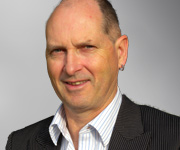ALTHOUGH social media has rapidly become part of everyday life for a growing majority of the population, the potential dangers of internet exposure can even trap unwary doctors.
Recently, the mother of a teenage girl discovered her daughter had been exposed to one of those dangers after her daughter’s name was overheard in a doctor’s waiting room. According to media reports a 31-year-old man who heard her named called by a doctor started stalking her on Facebook.
The concerned mother wanted the practice to do something about the situation. What to do?
The doctor involved, Dr Praveen Kumar, introduced a ticket-style system to call patients from the waiting room.
The issue raises the question of responsibilities for medical practices generally with respect to protecting patient confidentiality.
The RACGP Standards for general practices 4th edition requires that practices provide visual and auditory privacy.
Visual privacy is specifically about not allowing others to see private information as well as allowing the patient privacy while undressing during the examination, by way of cubicles, screens, curtains, gowns and sheets as well as when dressing afterwards.
Auditory privacy is about ensuring confidentiality of personal health information, and that conversations with and about patients are not overheard by others. It does not require the patient to not be identified by name.
It is not reasonable to expect all health providers to introduce a number system to protect identity. There is a requirement to treat patients with courtesy and respect, and this also relates to how patients are called in the waiting area.
Where possible, use the least identification information required to call the patient — first name or last name but occasionally the full name when others in the area may have a matching name.
Dr Kumar introduced a number system not because he was required to, but in order to allay the mother’s concerns and to address a problem with a local solution. He admitted that patients at first were not happy with the system until it was explained why it had been implemented.
In a world where people are increasingly depersonalised by identity numbers, automated call centres and speech self-service, health professionals should always try to maintain a personal touch. It is more important in health than any other industry sector.
Privacy law relates to information about an individual but does not prohibit identification by using a person’s name. If using a person’s name did breach privacy laws, just imagine a future school speech night: “The award for achievement in science goes to student 204.”
Attending a medical practice, particularly a general practice, is a common activity and of itself carries no specific information. It does not imply illness as many attend for other reasons including general checkups, advice on travel requirements and insurance medicals.
There may be some areas of medical practice where anonymity could be preferred such as a sexual health clinic. Practice design with smaller waiting areas might help.
Not long ago, I attended a local private hospital for an endoscopy. My health information was thoughtfully collected in a private room, I was able to change into a theatre gown in a private cubicle and then took my seat with others in a common waiting room — directly opposite one of my patients whom I had referred to the same specialist.
I kept my legs together and hoped as I left the room the back of my gown stayed securely tied.
Dr Neville Steer is a member of RACGP National Standing Committee — General Practice Advocacy and Support, and a GP and practice owner in Mornington, Victoria.
Posted 25 March 2013

 more_vert
more_vert
This incident should not be taken as a situation to look for faults or alternative solutions!!! Instead of saying things like in the last post, what should be considered is that THERE IS A LOOPHOLE IN THE CURRENT SYSTEM THAT CAN BE UTILISED BY ONE FOR HIS/HER NEGATIVE MOTIVES!!
Hence, we should come up with solutions like this which will surely help in the long run and not try alternatives which mask the current issue.
Another very positive thing about using this number system is that in busy bulk billing practises there are a lot of new patients, and many times it is difficult to pronounce names of patients who come from different parts of the world and the fact that most doctors are IMGs, even Aussie names can be tongue twisters for them! Using a universal system of numbers we can eliminate embarrassment to patents and doctors!
FYI , before the number system, if faced with a difficult name, I have used apps on the iPhone to overcome tongue twister names.
Parents who let their children use social media sites have a responsibility to ensure their children are educated about cybersafety and that the account privacy settings are adequate to protect them from stalking. If the man in question had followed the girl home, rather than attempting contact on a social media site, would it be suggested that it could have been prevented by blindfolding patients in the waiting room, or getting them to wait in their cars and inviting them in by text….or perhaps private communication via Facebook??